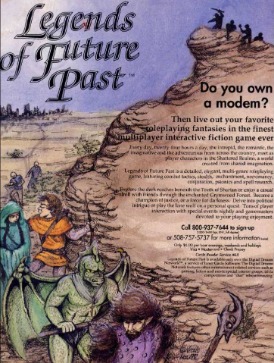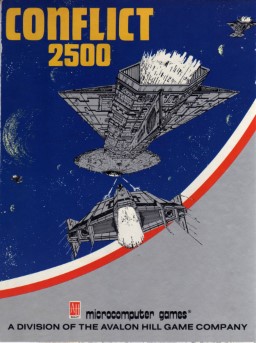A massively multiplayer online role-playing game (MMORPG) is a video game that combines aspects of a role-playing video game and a massively multiplayer online game.

Star Raiders is a space combat simulator video game created by Doug Neubauer and published in 1980 by Atari, Inc. Originally released for the Atari 400/800 computers, Star Raiders was later ported to the Atari 2600, Atari 5200, and Atari ST. The player assumes the role of a starship fighter pilot, who must protect starbases from invading forces called Zylons. Piloting and combat are shown in the 3D cockpit view, while a 2D galactic map shows the state of the Zylon invasion. Neubauer made the game in his spare time at Atari, inspired by contemporary media such as Battlestar Galactica and Star Wars, as well as the 1971 mainframe game Star Trek.

Rebellion Developments Limited is a British video game developer based in Oxford, England. Founded by Jason and Chris Kingsley in December 1992, the company is best known for its Sniper Elite series and multiple games in the Alien vs. Predator series. Sister company Rebellion Publishing has published comic books since 2000, when it purchased 2000 AD, the publisher of characters such as Judge Dredd and Rogue Trooper.
1973 saw a substantial increase in the amount of video games created and distributed in multiple sectors. In coin-operated games, a craze for Pong-style games ignited the first fad for video games both in the United States and other countries such as Japan and the United Kingdom. Time-sharing networks saw greater proliferation of popular programs through type-in listings. The PLATO network played host to some of the earliest massively multiplayer games.

Alien is a 1982 maze video game for the Atari 2600 published by Fox Video Games. The game has the player control a human moving through the hallways of a space ship avoiding the adult alien and destroying the small alien eggs.
In the history of video games, the second-generation era refers to computer and video games, video game consoles, and handheld video game consoles available from 1976 to 1992. Notable platforms of the second generation include the Fairchild Channel F, Atari 2600, Intellivision, Odyssey 2, and ColecoVision. The generation began in November 1976 with the release of the Fairchild Channel F. This was followed by the Atari 2600 in 1977, Magnavox Odyssey² in 1978, Intellivision in 1980 and then the Emerson Arcadia 2001, ColecoVision, Atari 5200, and Vectrex, all in 1982. By the end of the era, there were over 15 different consoles. It coincided with, and was partly fuelled by, the golden age of arcade video games. This peak era of popularity and innovation for the medium resulted in many games for second generation home consoles being ports of arcade games. Space Invaders, the first "killer app" arcade game to be ported, was released in 1980 for the Atari 2600, though earlier Atari-published arcade games were ported to the 2600 previously. Coleco packaged Nintendo's Donkey Kong with the ColecoVision when it was released in August 1982.

Legends of Future Past was the first commercial text-based MUD to make the transition from a proprietary network provider to the Internet. It was designed by Jon Radoff and Angela Bull. It was also notable in that it had paid Game Masters who conducted online events. The game was originally offered for $6.00 per hour in 1992 via CompuServe, and then lesser amounts via the Internet, operating until December 31, 1999.

Pac-Man is a 1982 maze video game developed and published by Atari, Inc. under official license by Namco, and an adaptation of the 1980 arcade game Pac-Man. The player controls the title character, who attempts to consume all of the wafers in a maze while avoiding four ghosts that pursue him. Eating flashing wafers at the corners of the screen causes the ghosts to temporarily turn blue and flee, allowing Pac-Man to eat them for bonus points. Once eaten, a ghost is reduced to a pair of eyes, which return to the center of the maze to be restored.

The Bartle taxonomy of player types is a classification of video game players (gamers) based on a 1996 paper by Richard Bartle according to their preferred actions within the game. The classification originally described players of multiplayer online games, though now it also refers to players of single-player video games.
A guild hosting or clan hosting service is a specialized type of web hosting service designed to support online gaming communities, generally referred to as guilds or clans. They vary from game server hosting in that the focus of such companies is to provide applications and communication tools outside the gaming environments themselves.

hi5 is an American social networking service based in San Francisco, California. It is owned by The Meet Group.

gamerDNA Inc. was a social media company for video game players founded on September 21, 2006. The company was part of Live Gamer. Members may tag themselves with information on games they have played, server names and guild affiliations, and use this information to find people they have played with in the past, or find guilds or other gamers to play with based on play style. The company was originally funded by Flybridge Ventures.
Atari SA is a French video game holding company headquartered in Paris. Once one of the largest video game companies in the world through an acquisition policy under Infogrames, Atari SA dealt with continuing pressures and difficulty finding investors which led to the company seeking bankruptcy protection under French law in January 2013 while subsidiaries in the United States sought Chapter 11 bankruptcy protection as well. Since 2020, the company has seen a turnaround with a new focus on dealing with re-releases of older titles and the acquisition of companies that deal with the re-release of mainly abandonware video games.

Game of Thrones Ascent was a 2013 strategy game developed and published by Disruptor Beam for iOS, Facebook, Android, and web browser. and The game is based on the television series Game of Thrones, which is an adaptation of the series of fantasy novels A Song of Ice and Fire by George R. R. Martin. According to Martin, the game features "alliance building, treachery, marriages, murders, and most of all the constant struggle to be the greatest house in Westeros." The game includes the ability to engage in the dynamic political and social intrigue featured in the books and television show. The game had over 9 million registered players though daily activity suggested 3 thousand active players.

Star Trek Timelines is a strategy role playing video game developed by Disruptor Beam for iOS and Android devices, Facebook, Facebook Gameroom, the Amazon Store, and Steam. On March 4, 2020 Tilting Point acquired the game from Disruptor Beam and created a new studio Wicked Realm Games to support the title. The player is the captain of a ship and can form their ship's crew from characters from any era of Star Trek, while steering the fate of the galaxy through diplomacy, science and force of arms.

Super Nova is clone of Atari, Inc.'s Asteroids arcade game published by Big Five Software for the TRS-80 in 1980. Co-author Bill Hogue called Super Nova "the game that started the company."

Conflict 2500 is video game published by Avalon Hill in 1981 for the Apple II, Atari 8-bit computers, Commodore PET, and TRS-80.












